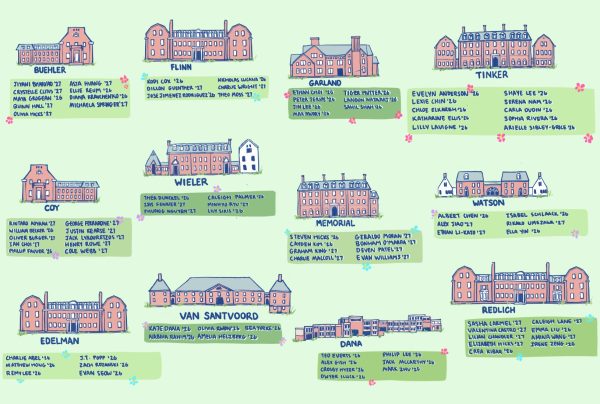Science Curriculum Moves Beyond APs
Staff writer Sydney Goldstein ’22 sat down with Ms. Eileen Sullivan, head of the science department and instructor in chemistry, to discuss the science program in its current form, as well as the curricular changes that the department will make over the next year.
What is your opinion on the changes to the Prep science curriculum?
The old Prep science course taught students important skills. I could see the benefits that students gained when they arrived in chemistry as Lower Mids. We chose to move to [Physics 150] so that students could learn many of the same important skills, but in the context of physics content.
Physics is an important science that exposes students to concepts that they will find valuable in later courses, particularly [in] chemistry and engineering. I think the move has been a good one. Students are learning to design their own labs, collect and analyze data, and to use the mathematical models they derive to solve problems. They are graphing and coding and learning to work together. Several new teachers [in] the department have [also] contributed to the design and implementation of this course.
How has the EFX lab changed the science program?
The EFX space is such a wonderful asset for Hotchkiss, and we are still just brushing the surface of the opportunities it will provide. It [provides a] space for students to work on projects in the afternoons and some evenings. Mr. [Michael] Boone, [instructor in physics and engineering], joined us this year and is in the process of expanding the engineering program.
What changes to the program do you hope to make in years to come?
Next year, we will continue to move away from AP’s. AP Physics I, AP Biology, and AP Environmental Science will no longer be offered. Instead, students will have introductory courses (regular and honors) from which to choose in biology and physics (as well as the current offerings in chemistry).
Students will also have a greatly expanded slate of electives from which to choose. In addition to Limnology and Stream Ecology, several new electives (Forest Ecology, Agroecology, Conservation Biology, and Climatology) will be offered in the Environmental Sciences. Advanced electives in Waves and Electromagnetism and in Thermodynamics will be offered in Physics.
The number of engineering electives will double, allowing students to choose [an] introductory or challenging pathway. The electives being offered currently will remain. Organic Chemistry will make a reappearance next year, and it will be geared toward students looking for a challenging advanced-chemistry option. AP Chemistry and AP Physics C will be offered for one more year, and then similar changes will occur to replace them with challenging semester or year-long electives.




